Document Author
Year Published
- 2015 (8) Apply 2015 filter
- 2016 (6) Apply 2016 filter
- 2017 (6) Apply 2017 filter
- 2020 (6) Apply 2020 filter
- 2018 (3) Apply 2018 filter
- 2011 (2) Apply 2011 filter
- 2013 (2) Apply 2013 filter
- 2014 (2) Apply 2014 filter
- 2019 (2) Apply 2019 filter
- 2021 (2) Apply 2021 filter
- 1999 (1) Apply 1999 filter
- 2003 (1) Apply 2003 filter
- 2004 (1) Apply 2004 filter
- 2005 (1) Apply 2005 filter
- 2008 (1) Apply 2008 filter
- 2014; 2017 (1) Apply 2014; 2017 filter
- 2022 (1) Apply 2022 filter
Topic
- (-) Remove Justice Tech Entrepreneurs filter Justice Tech Entrepreneurs
- Working Groups (26) Apply Working Groups filter
- 100% Access to Justice (20) Apply 100% Access to Justice filter
- Research (16) Apply Research filter
- Technology (16) Apply Technology filter
- Scaling in Court Systems (13) Apply Scaling in Court Systems filter
- Reports, Evaluations, Best Practices, Surveys (12) Apply Reports, Evaluations, Best Practices, Surveys filter
- Integration with Institutional Process (11) Apply Integration with Institutional Process filter
- Consumer Adoption (10) Apply Consumer Adoption filter
- Regulatory Concerns (9) Apply Regulatory Concerns filter
- Self-Help Centers (9) Apply Self-Help Centers filter
- Reports (8) Apply Reports filter
- Trial Court Self-Help (8) Apply Trial Court Self-Help filter
- Funding Strategies (7) Apply Funding Strategies filter
- Strategic Planning (7) Apply Strategic Planning filter
- Best Practices for Self-Help Centers (6) Apply Best Practices for Self-Help Centers filter
- Funding (6) Apply Funding filter
- Courts (5) Apply Courts filter
- Ethics Education (5) Apply Ethics Education filter
- Impact of Self-Represented Litigant Innovations on Cost and Efficiency (5) Apply Impact of Self-Represented Litigant Innovations on Cost and Efficiency filter
- Allied Professionals (4) Apply Allied Professionals filter
- Articles & SRLN Briefs (4) Apply Articles & SRLN Briefs filter
- Forms (4) Apply Forms filter
- Human Centered Design (4) Apply Human Centered Design filter
- Presentations (4) Apply Presentations filter
- Webinars (4) Apply Webinars filter
- Working Group Content (4) Apply Working Group Content filter
- Attorney Ethics (3) Apply Attorney Ethics filter
- Best Practices (3) Apply Best Practices filter
- Legal Aid (3) Apply Legal Aid filter
- Linking a Self-Help Center to Other Services (3) Apply Linking a Self-Help Center to Other Services filter
- Remote (3) Apply Remote filter
- Tools for Evaluating Self-Help Programs and Services (3) Apply Tools for Evaluating Self-Help Programs and Services filter
- Triage & Service Portal (3) Apply Triage & Service Portal filter
- Unbundling (3) Apply Unbundling filter
- About Cartography (2) Apply About Cartography filter
- Automated Forms & E-Filing (2) Apply Automated Forms & E-Filing filter
- Libraries (2) Apply Libraries filter
- Map Gallery (2) Apply Map Gallery filter
- Plain Language (2) Apply Plain Language filter
- Plain Language & LEP (2) Apply Plain Language & LEP filter
- Simplification (2) Apply Simplification filter
- Starting a Self-Help Center (2) Apply Starting a Self-Help Center filter
- Triage (2) Apply Triage filter
- ATJ Commissions (1) Apply ATJ Commissions filter
- Forms (1) Apply Forms filter
- General Non-Profit Resources for Planning and Evaluation (1) Apply General Non-Profit Resources for Planning and Evaluation filter
- Judges (1) Apply Judges filter
- Judicial Ethics (1) Apply Judicial Ethics filter
- Private Bar (1) Apply Private Bar filter
State
- California (5) Apply California filter
- Illinois (2) Apply Illinois filter
- New York (2) Apply New York filter
- Alaska (1) Apply Alaska filter
- Florida (1) Apply Florida filter
- Idaho (1) Apply Idaho filter
- Indiana (1) Apply Indiana filter
- Maryland (1) Apply Maryland filter
- Minnesota (1) Apply Minnesota filter
- Montana (1) Apply Montana filter
- South Carolina (1) Apply South Carolina filter
- Texas (1) Apply Texas filter
- Utah (1) Apply Utah filter
Tags
Post date
Search results
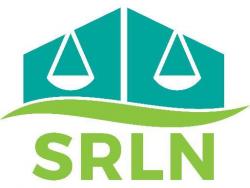
Legal Services Community Principles and Guidelines for Due Process and Ethics in the Age of AI
Published in 2018, Legal Services Community Principles and Guidelines for Due Process and Ethics in the Age of AI is the work of an initivative led by Angela Tripp, Abhijeet Chavin, and Johnathan Pyle. The brief summarizes a collection of principles and g ...
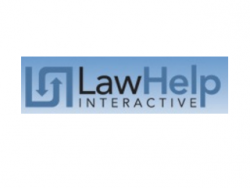
SRLN Brief: Examples of LHI Driven Partnerships (ProBonoNet 2016)
In addition to offering a platform for document assembly, the LHI project has been the catalyst to many significant court, legal aid and community partnerships. Below is a summary of just a few game changing partnerships. LHI also looks for access to just ...
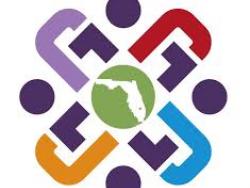
Report: Measuring Online Legal Resources: A Framework Inspired by the Drake Equation (Florida Justice Technology Center 2018)
This report and companion webinar offer a framework to measure access to justice, and whether specific interventions have made an impact. For more information and resources about the Drake Equation for Access to Justice Work, please visit the Florida Just ...
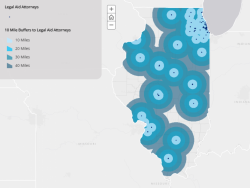
Presentation: Know Your Users- The Importance of User Experience in Court Planning and Operations (Court Technology Conference 2017)
The Illinois Supreme Court and SRLN created a mapping application to assess the court user's experience in Illinois. “User experience and thinking about our users helps increase efficiencies, helps us know what we don't know, and helps us better ...
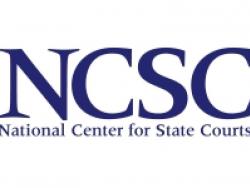
Report: Building A Litigant Portal: Business and Technical Requirements (NCSC 2015)
With funding from State Justice Institute, Thomas Clarke of the National Center for State Courts assembled two advisory committees – one to develop the business requirements for a litigant portal, and another to examine the technical requirements necessar ...
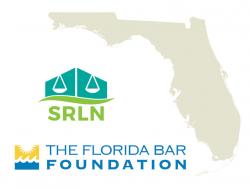
Presentation: What’s In It For Me? How to Use Geospatial Data Visualization to Inform and Engage Decision Makers (EJC 2017)
At the 2017 American Bar Association (ABA) Equal Justice Conference and the National Meeting of State Access to Justice Chairs, Nancy Kinnally and Alison Davis-Holland shared their story of how they used geospatial data visualization and strategic messag ...
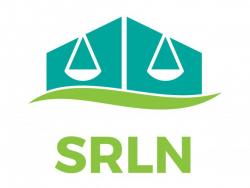
SRLN Brief: Procedural Fairness / Procedural Justice (SRLN 2015)
Research has shown that when defendants and litigants perceive the court process to be fair, they are more likely to comply with court orders and follow the law in the future—regardless of whether they “win” or “lose” their case. This is called procedural ...
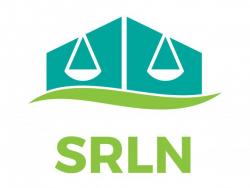
Report: Remote Appearances of Parties, Attorneys and Witnesses, A Review of Current Court Rules and Practices (SRLN 2017)
The Remote Appearances of Parties, Attorneys and Witnesses, A Review of Current Court Rules and Practices report is a follow up report to Serving Self-Represented Litigants Remotely – A Resource Guide. It "presents the author’s conclusions about the ...
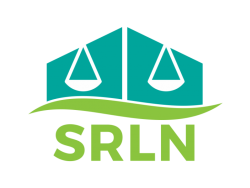
Best Practices: Best Practices in Court-Based Programs for the Self-Represented: Concepts, Attributes, Issues for Exploration, Examples, Contacts, and Resources (SRLN 2008)
This document, now in its second version, summarizes forty-two best practices in court based self-help service innovation, with descriptions of each practice, suggested attributes, examples and contacts. Recommended Citation, The Self-Represented Litiga ...
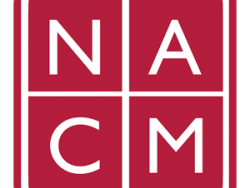
Webinar: How to Incorporate Plain Language into Court Forms, Websites, and Other Materials (NACM 2017)
The National Association for Court Management (nacmnet.org), in partnership with the Self-represented Litigation Network (SRLN), invites you to participate in its third webinar of 2017 on November 29, 2017 at 2:00 p.m. EST. Plain language is recognized ...